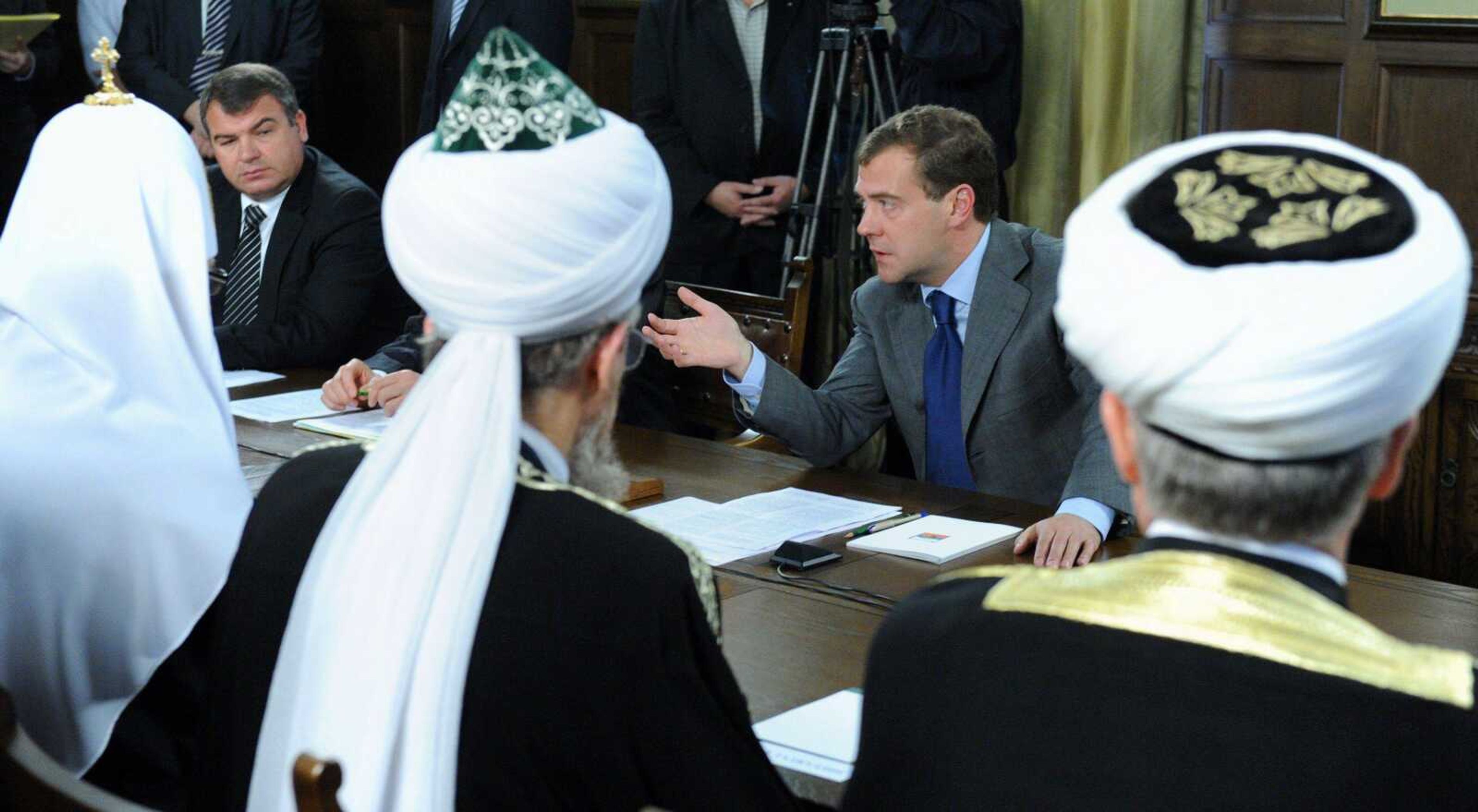BARVIKHA, Russia -- Russian President Dmitry Medvedev announced a pilot project Tuesday that will require schoolchildren to take classes in religion or secular ethics.
The proposal is part of a Kremlin effort to teach young Russians morals in the wake of a period of uncertainty following the collapse of the officially atheist Soviet Union.
Medvedev said preteen students at about 12,000 schools in 18 Russian regions would take the classes. They will be offered the choice of studying the dominant Russian Orthodox religion, Islam, Buddhism or Judaism, or of taking an overview of all four faiths, or a course in secular ethics.
Students and their parents must be allowed to choose freely, Medvedev said in addressing top clerics and officials at his residence outside Moscow. "Any coercion, pressure will be absolutely unacceptable and counterproductive," he said.
By 2012, the classes might be expanded nationwide, Medvedev said. The pilot project includes about 20 percent of Russia's schools.
The offer of a choice appeared aimed to ease concerns that Russian Orthodoxy will be forced on schoolchildren as the church gains influence and tightens ties with the state.
Mandatory classes in Orthodox culture were introduced in a few Russian regions three years ago, but they alarmed adherents of other confessions who said religion has no place in schools in a secular state. The classes also were criticized as being reminiscent of the forced study of communism or scientific atheism during Soviet times, with one mandatory ideology being substituted with another.
Russian Orthodox Patriarch Kirill has long pushed for the introduction of Orthodox classes in schools, but he was careful not to criticize the president's initiative. "The free choice and alternatives could serve as the basis for a system" of religious classes, he said.
Medvedev emphasized that the classes will include only "the largest of Russia's traditional religions" -- Orthodox Christianity, Islam, Judaism and Buddhism. He omitted other faiths, such as Roman Catholicism or Protestantism, which the Orthodox Church accuses of proselytizing.
Some nonreligious Russians complain that the church has tailored its doctrine to suit the government, which has justified Russia's retreat from Western-style democracy by saying the country has a unique history and culture.
Church and state are officially separate under the post-Soviet constitution, but Orthodox leaders seek a more muscular role for the church, which has served the state for much of its 1,000-year history.
The Russian Orthodox Church counts in its congregation more than 100 million people in Russia and tens of millions elsewhere. But polls show that only about 5 percent of Russians are observant believers.
Connect with the Southeast Missourian Newsroom:
For corrections to this story or other insights for the editor, click here. To submit a letter to the editor, click here. To learn about the Southeast Missourian’s AI Policy, click here.







